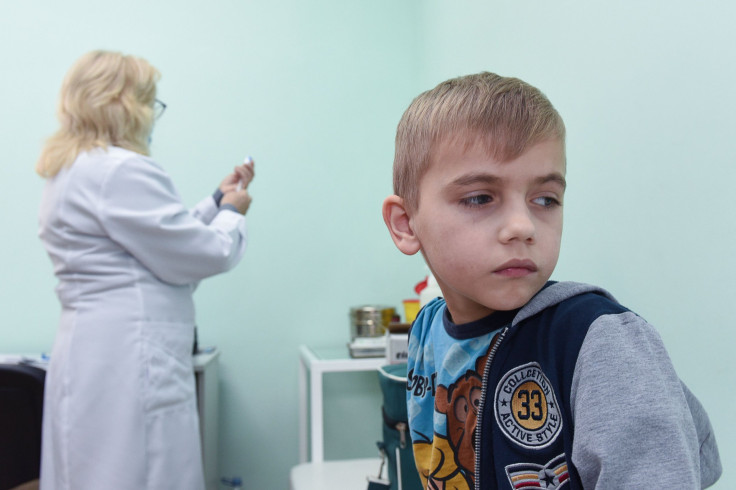Measles Outbreak 2019: Quick Facts, What To Know About The Infectious Disease

There has been a global surge in measles cases, with an uptick in the United States and four continents. According to a UNICEF report, 10 different countries — Brazil, France, Madagascar, the Philippines, Serbia, Sudan, Thailand, Ukraine, Venezuela and Yemen — currently account for nearly three-quarters of the increase of measles cases worldwide.
A total of 98 countries confirmed more cases of measles in 2018 compared to the previous year.
Ukraine has had the highest increase of measles outbreaks, with a count of 30,338 individual cases between 2017 and 2018, followed by the Philippines with 13,192 cases and Brazil with 10,262 cases.
From the start of 2019 to Feb. 21, there have been 159 measles cases in 10 U.S. states — California, Colorado, Connecticut, Georgia, Illinois, Kentucky, New York, Oregon, Texas and Washington — according to Centers for Disease Control and Prevention.
There have also been reports of measles outbreaks in Washington, D.C., and the New York metropolitan area. The majority of cases reported were children who were not vaccinated against the disease. Outbreaks were also reported in Portland, considered an "anti-vax hotspot."
Measles, a very contagious disease caused by a virus, infects the upper respiratory tract and then spreads throughout the body. Its symptoms include a runny nose, cough, red and watery eyes, small white spots on the inner cheek that appear in the initial days of the disease and a red rash that usually appears on the face and the upper neck.
Complications that can arise include pneumonia and brain swelling, the latter of which can lead to seizures, intellectual disability, or deafness. The most serious complications occur for those under the age of 5 and over the age of 30.
UNICEF's website states that 367 children die from measles every day. The Centers for Disease Control and Prevention reports that for every 1,000 children who contract measles, 1 or 2 will die from it.
The World Health Organization estimates that approximately 21.1 million deaths have been prevented from the disease since 2000 due to the measles vaccine. Before the introduction of the vaccine in 1963, major epidemics occurred every 2-to-3 years.
Measles can be prevented the MMR vaccine, which protects against measles, mumps and rubella. UNICEF estimates that 20.3 million child deaths worldwide have been averted through measles vaccinations.
In 2015, approximately 85 percent of children globally were immunized with merely one dose of the vaccine.
"This is a wake-up call. We have a safe, effective and inexpensive vaccine against a highly contagious disease — a vaccine that has saved almost a million lives every year over the last two decades," said UNICEF Executive Director Henrietta Fore in a statement.
"These cases haven't happened overnight. Just as the serious outbreaks we are seeing today took hold in 2018, lack of action today will have disastrous consequences for children tomorrow," she added.
Rep. Adam Schiff of California has pressured Amazon about allowing the spread of misinformation about vaccinations, such as the debunked myth that they cause autism.
"Almost all of these cases are preventable, and yet children are getting infected even in places where there is simply no excuse," stated Fore, who alluded to anti-vaxxers as a primary cause for the uptick.
"Measles may be the disease, but, all too often, the real infection is misinformation, mistrust and complacency. We must do more to accurately inform every parent, to help us safely vaccinate every child."
© Copyright IBTimes 2024. All rights reserved.




















